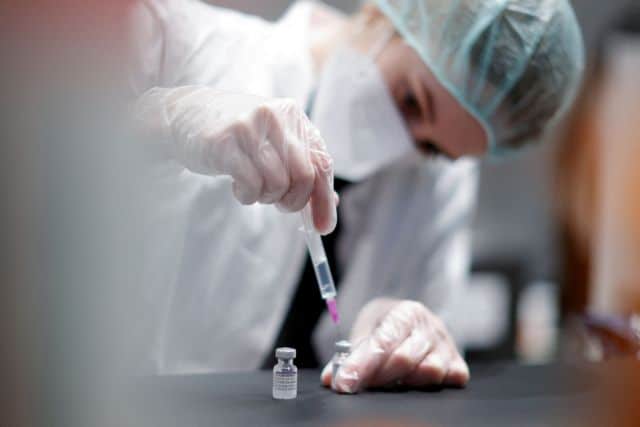Coronavirus vaccines do not cause infertility or infertility and generally do not affect a couple's ability to have children, nor do they adversely affect the early stages of pregnancy, as they do not increase the risk of miscarriage. This is the conclusion of two new US scientific studies that confirm that vaccines against Covid-19 have no effect on reproductive capacity.
Researchers at Mount Sinai Medical School and Hospital in New York, as well as the RMA Reproductive Medicine Center, led by Dr. Deborah Aaron, published in the journal Obstetrics & Gynecology, and compared miscarriages in 222 women who had resorted to IVF and had received two doses of the Pfizer or Moderna vaccine, compared with 983 women who had not been vaccinated.
"This is one of the largest fertility studies in vaccinated patients. The study did not find any significant differences between vaccinated and unvaccinated women in terms of ovarian activation, egg quality, fetal development or pregnancy outcome. "These findings should reassure those who are trying to have a child or are in the early stages of pregnancy," said Dr Aaron.
“It will relieve people to learn that the vaccine Covid-19 does not affect their reproductive potential ", stressed the professor of Gynecology-Obstetrics Alan Koperman.
A second study by scientists at the University of Boston School of Public Health, led by Assistant Professor of Epidemiology Amelia Wesselink, published in the American Journal of Epidemiology, concluded that vaccination against Covid-19 does not affect the fertility of either men or women. Conversely, if a man becomes infected with the coronavirus, it has been found that he may experience a temporary (not permanent) decrease in his fertility due to his reduced sperm quality and other reproductive dysfunctions, but this can be avoided by vaccination.
The study, which was performed on 2.126 couples trying to have a child, found no correlation between vaccination (with Pfizer, Moderna or Johnson & Johnson vaccines) and fertility (the chance of conception at each menstrual cycle). The fertility of vaccinated and unvaccinated was approximately the same.
Previous studies have shown that on the one hand the infection Covid-19 significantly increases the risk of serious disease in pregnant women on the other hand vaccines protect pregnant women, transmit antibodies to their babies and do not increase the risk of premature birth or complications, so it is advisable for pregnant women to be vaccinated against coronavirus.
Source: RES-EAP
